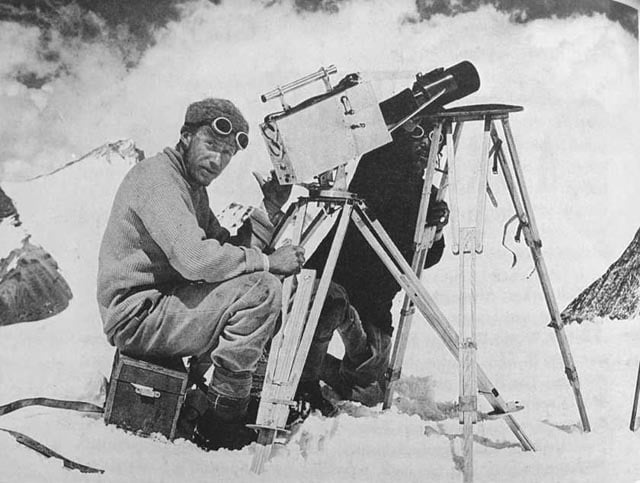
The Role Of Empathy In Documentary Filmmaking
Documentary filmmaking is a powerful medium with the potential to both entertain and educate. One of its most important elements is empathy’s role. In this blog post, we’ll explore empathy’s power and how it can be integrated into documentary filmmaking. We’ll discuss the significance of empathetic storytelling and the impact it can have on viewers. By the post’s end, you’ll have a better understanding of empathy’s place in the documentary filmmaking role of empathy and its potential to inspire change.
Read More Article: Evan Gilbert-Katz Filmmaker
Understanding The Power Of Empathy
Empathy is a powerful tool for documentary filmmakers. It allows them to engage their audience on an emotional level. Understand the emotions and perspectives of those featured in the film. And use that empathy to create powerful stories that resonate with viewers. As a filmmaker, it is important to identify common assumptions viewers may have about certain people or situations. And break them down with your story. The documentary film offers viewers insight into hopes, aspirations, and dreams. And fears of others and can create opportunities for mutual understanding. By fostering empathy with our audiences, we can inspire understanding of social issues. And open up possibilities for positive change through storytelling.
Using Compassionate Storytelling To Create Impactful Documentaries
“Documentary filmmaking is a powerful way to tell stories and create meaningful conversations. Through compassionate storytelling, filmmakers can move us to react. And think about the issues presented in their films. Compassionate storytelling involves applying personal experiences in filmmaking. To create empathy and foster an environment of understanding and respect.
The role of empathy in documentary filmmaking is crucial for creating impactful films that challenge our preconceived notions by allowing us to emotionally connect with the storyteller’s experience. By understanding another person’s perspective. We can better comprehend their needs, allowing us to think more deeply about social issues from different angles. To effectively portray this level of empathy through film. Filmmakers must use techniques that allow them to connect with their subjects on a deeper level. Such as conducting open-ended interviews, and actively listening. Validating emotions expressed by participants during interviews or filming sessions. And practicing nonjudgmental observation while capturing footage.
Person-centered storytelling techniques can also help filmmakers create an immersive experience that captures real-life experiences and authentic emotions. Documentary films created by kids have the power to facilitate discussions in classrooms, and at family dinner tables, and promote global competency, empathy, and compassion. Documentaries have the power to create a lasting impact on viewers by engaging them in the story and giving voice to people suffering from oppression or overlooked issues within our society.
Incorporating Empathy In Documentary Filmmaking
Documentary films can evoke empathy, but effectively incorporating empathy can be challenging. Documentary filmmakers must strive to create emotionally engaging stories without exploiting subjects and build trust while avoiding deceptive camera techniques. Character-driven narratives, personal stories, and conversations can be used to tell stories that promote empathy in viewers. Documentaries created by children have the power to promote global competency and compassion for those affected by social issues. Empathy is an essential tool for behavioral change and promotes understanding and compassion within society. Watching documentaries exposes viewers to stories and experiences far removed from their own, fostering empathy and a better understanding of the world.
Must Read Article: The Art of Observational Documentary Filmmaking
The Impact Of Empathic Storytelling
The impact of empathic storytelling is undeniable. Documentary filmmaking has the power to engage audiences in meaningful story arcs, creating emotional connections that can drive people to take action and create behavior change. By understanding the role of empathy in documentary filmmaking, filmmakers can use various techniques to evoke emotion from their viewers.
Production design plays a vital role in conveying emotion through film. Camera angles, sound, and lighting all contribute to how viewers perceive a scene or character onscreen and can create an emotional response from the audience. Storytelling techniques such as using visual metaphors or talking about struggles with resilience demonstrate our shared humanity and create an understanding of how we are all connected as human beings. It is also essential for filmmakers to listen when exploring difficult topics or stories; this allows them to capture accurately the emotions of those who have experienced hardship or injustice firsthand.
Documentaries provide a platform for underrepresented communities to tell their stories and be heard, allowing these groups space within mainstream media outlets to which they may not otherwise have access. Documentaries shed light on current issues and environmental concerns that may have been overlooked by mainstream media outlets; providing insight into topics that are often complex and hard for us to understand without further explanation or exploration.
Viewers become invested in documentaries by connecting emotionally with the subject matter presented onscreen, creating a sense of closeness between them and those featured in the film.
In Conclusion
Documentary filmmaking can create meaningful conversations and inspire action. Filmmakers must understand the role of empathy in this genre. As it can be used to craft powerful stories that evoke emotions in viewers. Empathy fosters understanding between viewers and those featured in the film. Allowing us to identify with characters and form a strong emotional connection with them. Through compassionate storytelling, preconceived notions of certain people or situations can be challenged. Providing opportunities for mutual understanding, and inspiring change within society. To create an impactful documentary film, consider incorporating empathy into your storytelling process.




